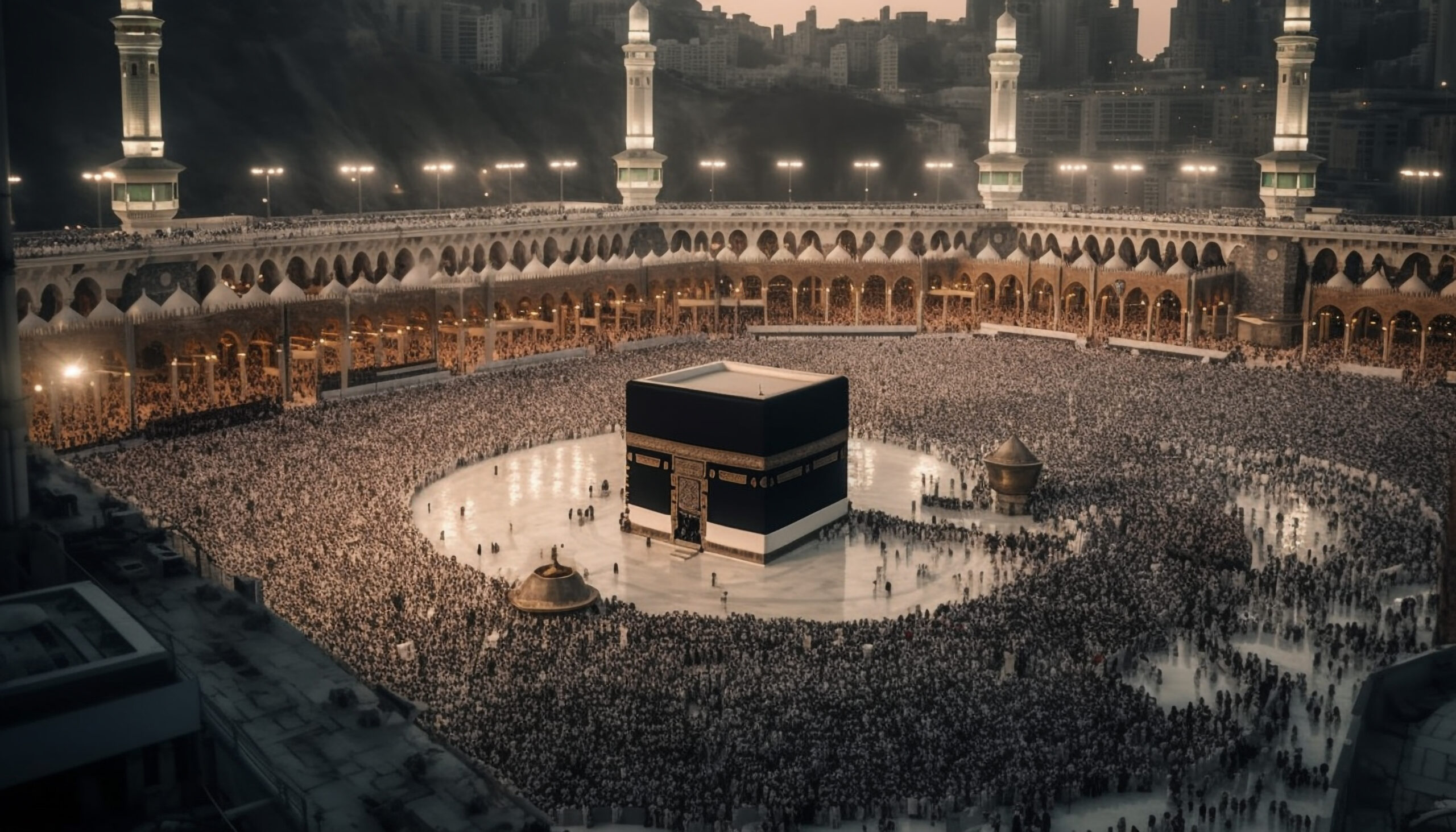Journey of a Lifetime: Exploring Hajj Traditions

Introduction:
Hajj, the sacred pilgrimage to Mecca, is a deeply significant event in the lives of millions of Muslims worldwide. It’s not just a journey; it’s a profound spiritual experience that resonates with believers across cultures and generations. In this article, we’ll delve into the heart of Hajj, exploring its rich traditions and uncovering the timeless wisdom hidden within.
The Historical Tapestry of Hajj:
The roots of Hajj stretch back to the time of Prophet Ibrahim (Abraham) and his family. It’s a journey steeped in history and faith, with rituals that echo the trials and triumphs of Ibrahim’s unwavering devotion to Allah. Understanding this historical backdrop adds layers of meaning to the rituals performed during Hajj.
Pillars of Hajj:
A Spiritual Scaffold: Hajj consists of several rituals, often referred to as the “pillars” of the pilgrimage. Each pillar represents a fundamental aspect of faith and submission to Allah. From the symbolic circumambulation of the Kaaba to the solemn standing at Mount Arafat, these rituals serve as a spiritual scaffold guiding pilgrims on their journey of self-discovery and devotion.
Diversity Amidst Unity:
One of the most striking aspects of Hajj is the diversity of its participants. People from all walks of life, from every corner of the globe, come together in a remarkable display of unity and brotherhood. Despite differences in language, culture, and background, pilgrims find common ground in their shared faith and reverence for Allah.
The Kaaba:
A Symbol of Oneness: At the heart of Hajj lies the Kaaba, the sacred house of worship in Mecca. It serves as a focal point for the pilgrimage, a symbol of unity and devotion for Muslims worldwide. Circumambulating the Kaaba during Tawaf, pilgrims affirm their faith in the oneness of Allah and the unity of the Muslim community.
Sacrifice and Surrender:
Another central theme of Hajj is sacrifice, echoing the willingness of Prophet Ibrahim to submit to Allah’s will. The ritual of Qurbani, or animal sacrifice, reminds pilgrims of the importance of selflessness and devotion in the service of Allah. It’s a powerful symbol of surrendering one’s ego and desires in pursuit of spiritual growth.
Conclusion:
Hajj is more than just a journey; it’s a transformative experience that leaves a lasting imprint on the hearts and minds of pilgrims. By exploring its traditions and teachings, we gain a deeper understanding of the universal values of faith, unity, and sacrifice that lie at its core. May the lessons of Hajj inspire us all to lead lives of compassion, humility, and devotion to Allah.





